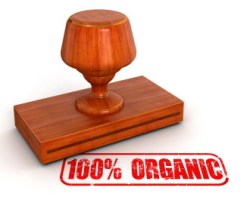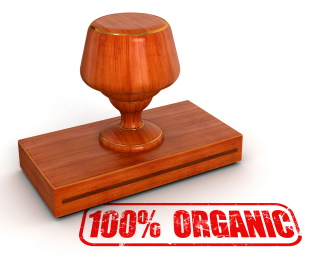 Think mergers are only for big corporations? Not so these days. California Certified Organic Farmers (CCOF) and Oregon Tilth, two of the nation’s largest third-party organic certifiers, announced plans last week to join forces and become a kind of supergroup of certifiers called — you guessed it — CCOF Tilth.
Think mergers are only for big corporations? Not so these days. California Certified Organic Farmers (CCOF) and Oregon Tilth, two of the nation’s largest third-party organic certifiers, announced plans last week to join forces and become a kind of supergroup of certifiers called — you guessed it — CCOF Tilth.
The U.S. Department of Agriculture (USDA) oversees the National Organic Standards, but there are independent organizations (accredited by the agency) who make sure that farms, food producers, and handlers are sticking to those standards by avoiding toxic pesticides, genetically engineered seeds, synthetic fertilizers, etc.
If the merger goes through, as it is likely to, CCOF Tilth will be the biggest game in town with nearly 4,000 farmers, ranchers, and processors under its charge. The organization will also develop a new label to accompany the name change.
“Oregon Tilth’s and CCOF’s origins date back to the 1970s amidst growing interest in the benefits of organic farming,” said Chris Schreiner, Oregon Tilth’s executive director, in a statement. “We both have deep roots in the organic movement.”
The boards of directors of both groups have approved the move, which is expected to be formalized in October.
Cathy Calfo, executive director of CCOF, will also serve as the executive director for CCOF Tilth. She said the merger will allow for greater efficiency in the certification process, as well as an expansion of research, advocacy, and educational work.
Perhaps above all, Calfo expects the merger to bring a financial boost directly to farmers. Many of the organizations’ members are small- to medium-sized farms, and the costs of organic certification can be a real strain. Calfo said that when the unified certification organization spreads those costs over a larger number of farmers, each farmer should face smaller fees.
“What we’re hoping to see out of this is a stabilization of certification costs,” she said.
On a website dedicated to the merger, CCOF Tilth says some members will also see reductions in paperwork and faster inspections.
But not everyone is without criticism. Mark Kastel of The Cornucopia Institute, the organization that often acts as a watchdog to the organic industry (and was behind the recent kerfuffle about GMO ingredients in Kashi cereal), is keeping a close eye on the merger.
“Certification has become a multimillion-dollar industry, and there will be certainly implications to this major merger in the organic industry,” said Kastel. “We like to say that ‘competition is the friend of the farmer.’ We will now have two giant organizations dominating farmer and processor certification,” he added.
Nonetheless, the organization’s leaders tout the benefits of the merger as good for a growing industry.
As Calfo puts it: “We’re two organizations with a common history that want to join forces to grow the organic movement together.”




